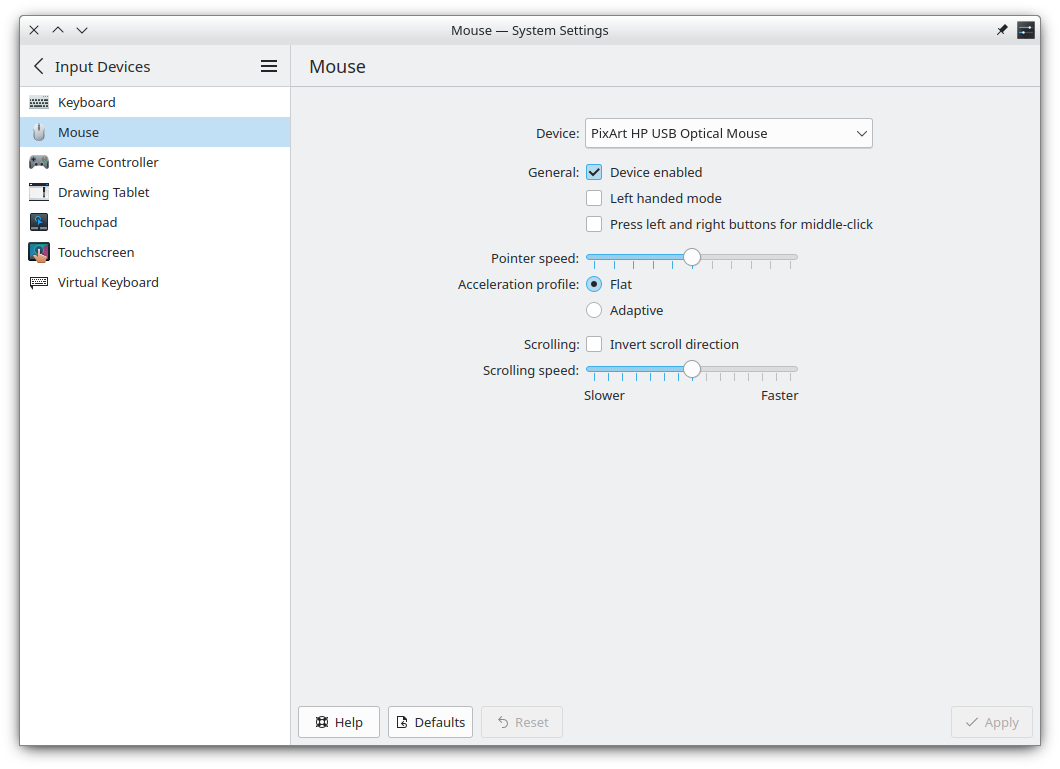deleted by creator
“I can’t install an app because a dependency depends on another dependency that I already have installed but in ever so slightly the wrong way, but I have another app installed which depends on this dependency being installed the way it is now, so I’ll have to compile the app from source instead and tweak the config file to work with my version of this dependency, but I also can’t compile the app because of the dev environment dependencies.”
Can I introduce you to our lord and savior Flatpak?
In which distro does that work?
All
This is their official site, you can unofficially run it on almost any distro since they all are Linux based after all.
NixOS be like: “lol”
How do people still get stuck in dependency hell?
“Oh good, I found a program that does exactly what I need, now I just need to add this weird-ass, mysterious repository…”
I’ve never had a problem with AUR packages (except for someone once forgetting to update the checksums but that was easy to fix)
Force force force
system refuses to boot
sudo boot --forceSudo is such a blessing to this world
I swear to god I installed Ubuntu the other week, it failed the apt upgrade and after a reboot it just loaded into Phoenix terminal… No idea what happened I just sighed and reinstalled a fresh copy.
Yup. It’s moments like these that I’m thankful I set up a separate home partition
That would only stop someone that can’t go beyond “clickety click” though.
Appimage/Flatpak ring any bell?
if you were still in the 90s sure…
The goose can’t say anything because its sound drivers mysteriously stopped working randomly after rebooting.
I remember I installed a Debian OS once years ago and it updated and broke its own repositories or something like that.
I also think they are missing, “jump through hoops to install some software and fix those issues on your own.”
I feel this pain… Every so often I install Linux hoping this is the year it will be easy… And then I try to install something simple as a password manager I used to use on windows and 5h later I finally figure it out after stackoverflow and googling… But then I’m just exhausted…
It just goes along with the mentality of the Lemmy community. The idea that everything FOSS and what they dictate is not mainstream is better in all ways.
I made a comment awhile back about how Lemmy users tend to have this r/notlikeothergirls mentality. That they know something the average user doesn’t because they can talk about FOSS, privacy, and security. In reality a lot of users don’t understand how that works at all.
Privacy here is technically a nightmare. You jump in a server without knowing what data is visible on that server and you are relying on the security of the person/people who is hosting that server.
There seems to be this idea of, “if I think it’s mainstream it’s just not as good.”
Truth is Linux is fantastic, Mozilla is also great, open source is also great but it doesn’t mean it is better by default in every way.
Look at Linux phones vs Android and iOS. Even people dictating privacy are still using modded versions of Android like Graphene OS because it works.
If you want some of the best Android security on the device physically you go with Pixel. Doesn’t matter how you feel about privacy. Same goes for iPhone.
Windows may be clunky but it does a lot of things right in regards to security as well. Doesn’t matter how you feel about Windows. Microsoft absolutely takes security of the system and how that security is distributed seriously.
Linux fantastic if you really want full control of your system and a great way to learn about those systems when you have to fix it if it breaks.
FOSS is also nice I hope we never lose hold of FOSS but that doesn’t make a paid product terrible either. Take Sync and Jerboa as examples. Jerboa is FOSS and Activity PUB is FOSS and so is Lemmy. But when you compare features and UI. Jerboa is stomped by Sync IMO and I will pay money for something that works really well.
Anyways I digress.
Sir, this is Wendy’s…
Just kidding, I had to do it to ya 😅
And then you reboot again and it mysteriously works again for no reason
I thought Linux never needed to restart 🤔🤔🤔
Linux servers never need to restart. They also probably don’t need sound drivers
whats this 2001?
You tell me. This literally happened to me a few months ago. I had sound working fine. I installed updates through the built-in update system. Rebooted. No sound. 🤷♂️
ALSA moment
And even if he could talk, he’s too busy thinking of the beautiful house of cards that is his systemd config.
Anyone who says windows can’t do X isn’t trying hard enough.
Which is why I don’t convert to Linux. If I wanted my desktop to be a tech nightmare I can just as easily do that on windows. Nice memes tho
The only real difference between Windows and Linux is that the first starts out as a tech nightmare and the second ends up that way. I use both regularly for both work and play, I’ve seen the good, bad, and ugly of both.
Fedora is rock solid. I’ve had two consecutive laptops running it for … I don’t know, close to a decade? Never had any degradation.
Simply because software doesn’t degrade performancewise. It gets better on a new machine.
Unless someone goes like “Sure, users probably never need this heavy feature but let’s bundle it anyway because fuck them!”
Eh, Windows, even when left isolated from the network, no updates, no installations, just normal usage, definitely degrades in performance over time. I know because I work with machines which use windows on their HMIs (terrible choice) and I see it happening.
deleted by creator
Windows
Exactly. Usually it’s uncleaned clutter accumulating and filling swap. Linux, BSD, IRIX etc. are not affected by this.
In some cases it’s hardware which would affect other OSs aswell.
I’ve heard so many good things about fedora now. My “it just works” desktop distro that I have been using in the past has been Debian testing (because debian stable packages are often so old many pieces of software can’t run on the system because the minimum version of some dependencies are too high). Being on testing has some disadvantages, though and I remember that somehow apt uninstalled
coreutilsand some other important packages (I have no idea how that happened), which meant I needed to reinstall the system, and #debian on IRC simply told me I shouldn’t be on testing if I’m not fine with some bugs. It is also overall feels less polished than stable.Maybe I Fedora is more appropriate for me. I’ve stuck to Debian, because
aptis the package manager I’m most familiar (and thus more comfortable) with, but maybednfwill be easy to pickup.Dnf is good, just very slow at updating repositories
isn’t Fedora heading forward to become a garbage distro? saw something from Chris Titus about them closing source
They are not, Fedora will always be a libre operating system.
Always interesting to hear other peoples experiences. It was the complete opposite for me, but I suppose that’s because I try very hard to bend a system to my will. And we all know which of the two is more flexible.
Are you saying Windows is more flexible than Linux? Or vice versa?
I’m saying Linux is more flexible. Windows started out fine for me, but then it turned into a nightmare because it ultimately just can’t run how I want an OS to run.
The ONLY time windows turns into a tech nightmare is when it’s being installed by a Linux fanboy…
You pick the harddrive to install it on. Make 5-12 clicks and you have a perfectly working system… But fanboys spend a week trying to do things with it, it is specifically designed not to do and then blame windows.
Not saying it isn’t without its issues like Microsoft spying on you, but 90% of the time is a user issue.
I’ve done Windows software development professionally for over 15 years, I promise you, Windows is a tech nightmare by default. Literally the only thing I do with my own copy of Windows is play games, and I still have to reformat the piece of shit every 8-12 months.
I don’t doubt you a bit, but my brother in Christ, you think countless SysAdmins around the globe are doing that!? So maybe stop and think about what’s happening in your chair to cause that because there are millions of machines that (from what you’re saying) are put through much more strenuous use everyday that don’t require yearly reinstalls.
My old laptop went without a reformat for 6 years running Windows, and that included significant hardware changes. The fuck are you doing just playing games to require a reformat basically ever?
I’m gonna guess at least a part of those games were pirated. I had the same issue when I used to pirate games, I was installing some shady shit and it would wreak chaos on my system so I had to reinstall windows every now and then. Since switching to steam I have not had to format once. Sailing the high seas sometimes gives you scurvy.
I’m not the guy you’re replying to, I have a Windows computer used exclusively for gaming and hobby CAD design (3d printer), I’ve used it for 8 years without issues before reinstalling… But you could definitely see the speed difference after the reinstall.
I probably would’ve had a difference if I reformatted after six years as well, but it was definitely not a requirement, I could still run most AAA games without major issues, just lower settings. I put that more to blame on old hardware than anything else, maybe a reformat would add a couple extra years but it had some physical breakages as well so I didn’t bother
Damn, that’s weird for a professional. I still have a Windows 98 computer running functionally. And none of my 6 other Windows computers have had a reinstall in the last 3 years (which was when I bought a new laptop)
Seems like PEBKAC
Only commenting because of the bad comment. I have supported windows desktops and servers for 17 years now since XP (dealt with systems prior to xp just not for my career), the only thing that has happened in that time is Windows has made it incredibly easy to do most things compared to then. I barely ever see blue screens anymore or an issue that can’t be fixed relatively easily and fast. The worst thing to happen in those years was Vista, now that I can agree was a pile of you know what…
I see the comments here and find it crazy that people who use Linux find Windows harder. I love both because they both offer different things they excel at.
I wonder if people used older versions of windows, didn’t like it, swapped to Linux and never looked at windows again since.
Windows has become extremely easy to install and use, much more so imo than any Linux distro I’ve tried.
Now for a server, Linux Debian is rock solid.
Absolutely, I work in a mixed environment with windows servers and Linux ones and without a doubt I would 100% take the Linux one for longer uptime without having issues. It just works and continues working. With that said I do feel like even the stability of windows server 2016 onward has also improved. My only hate for windows servers is the ungodly amount of time they take to patch these days.
I’ve always said that the reason so many people have issues with Windows is because they’re installing “debloater” scripts and disabling core system components.
I have debloated Win 11 on a Surface pro. Works OK but I much prefer MacOS (on M1, without Apple account) or PopOS. Much more zen.
what a coincidence if I wanted to have a tech nightmare desktop I’d just install Windows.
yeah i hate things that are functional out the box and have native support for 99% programs
truly a nightmare
Linux really isn’t a tech nightmare anymore, even my extremely technophobia partner can manage to use Linux now and most programs have a GUI so you can pretty much avoid ever opening the terminal if you really don’t want to.
“Use” and “configure” are 2 different things.
I doubt your partner set up her own Linux installation.
But she also wouldn’t be able to install and set up windows. What I’m saying is if Linux was pre installed like windows is, most people could manage to use it without much of an issue.
Does Linux come with a super easy installation Wizard even a technophobe can follow? Cause that is necessary as well for preinstalled computers.
Some of them do now
Finally, someone who gets me! My windows installs turn into such gargling abominations with all the customization I force into them that I could never relearn (before I retire) how to do all the stuff I can on windows in Linux.
…Or doesn’t need to try so hard.
Because their OS isn’t constantly fighting against them.
Change disk write schedulerUninstall edge
Really not that hard these days.
setup.exe --uninstall --system-level --verbose-logging --force-uninstall
I want to drag windows while left/right clicking and holding the windows buttons. I also want non shit virtual desktops. Guess I’m not trying hard enough.
I had an AHK script for the dragging, not sure if you could use Win keys to activate it, but I think you could.
We need about 300 ducks in this picture bashing each other because each one thinks it it superior.
I feel like the distro wars are mostly over. Unless you are using Manjaro like some idiot /s
Arch btw
Or Linux Mint like some 5-dimensional giga brain
Wait. Who wins?
Fedora or Arch, considering it’s on the Steam Deck.
I hear Redhat is the best!
It was great for a while :D
It’s like saying that when you enter a store with a good selection, there is a war between all the available items.
Linux - “I can’t hotplug”
Or
Linux - “I can’t do fractional scaling”
Or
Linux - “ so you want secure boot, a graphics card and full disk encryption, well here’s a wiki based on the last version that might work, fuck tpm while we are at it”
They all have their niche and strengths/weakensses
Fractional scalling works fine for me. Am I doing something wrong? How do I break it?
It’s a global setting, not per monitor or per setup and also quite gimped. Also on Wayland, on my couple of setups. It’s sucks ass.
Fractional scaling is per monitor on Wayland. (Unless it’s GNOME that you are using?)
Even on Gnome it’s per monitor, but X.org apps remain blurry.
Then that means two major Wayland compositors (KDE and GNOME) support per monitor fractional scaling.
Which makes me more confused about the “global setting” problem as mentioned by the previous commenter…
They were probably talking about text scaling which is the only viable way to scale apps up, unless you are okay with some blurry apps.
I have never had a problem with hotplugging or fractional scaling
Try an egpu or thunderbolt dock.
Desktop Linux is well known for how compatible it is with proprietary graphics card drivers. I can only imagine the world of pain you’re going through with them being un/pluggable.
I mean. They kinda work. In that they don’t crash or freeze as often as they have. But leveraging them for workloads, including for things like video processing/encoding is no where near on par with windows versions of the same drivers.
I used one for a long time with no issues.
Linux - I hope you don’t need to print anything because CUPS works intermittently at best.
Yeah that depends on the printer to be sure. But the common denominator there is printers fucking suck. Trying printing across AD domains or having usable point and print in windows without just saying fuck it and removing the print nightmare mitigation via regkey.
I use windows at work and I can say…fuck printers in general
I have had less trouble printing on Linux than on Windows. YMMV.
I never had printers behave well under windows either though
But that is because they are printers, and printers are gremlins that make sure to keep you off your work whenever they can.
Seriously, it is because printers need to convert analog to digital to analog, which is crazy difficult to get right.
It’s a little known fact, that Linux only got to where it is, fueled by the rage against printers that gave birth to the GPL.
Weird, I have literally never had any issues with CUPS, in environments where Windows completely failed due to the drivers being for an older version or unsigned or such
Yeah I ran cups from when the distros first started pushing for it hard and it always just worked at the office.
Recently at home my wife’s been complaining about air print not working well, so I decided to throw CUPS into a docker and have her use that as the interface. I don’t know if it’s my Wi-Fi network my printer or what but I’ve been fighting it for a solid week it’ll work for a print or two maybe three and then nothing. Nope sorry that printer’s not reachable anymore. Meanwhile all the windows boxes print to it just fine.
This is actually the problem. It detects my printers immediately but often fails to print.
like…no
Also removing CUPS will break other stuff.
Why is anyone requiring an Apple developed piece of software in Linux these days?
HDR
Fedora has literally all of this, out of the box. I mean so does Pop_OS!, but we don’t talk about Pop_OS!
Wait, why don’t we talk about Pop!_OS? I like Pop!_OS
Woah there! You’re presenting facts and logic to this circlejerk community!
My personal favorite
Linux -“ batteries are made to be drained fast”

Do you have a moment to talk about our lord and saviour, PopOS?
Haha. I have. It’s awesome. But systemd boot is a victim of lack of secure boot.
On the one hand. The lack of grub fucking with the windows boot sector is awesome. But the lack of secure boot is kinda annoying. Especially if you dual boot.
I just installed grub because LINUX. grub-customizer does a good job of keeping my menuentries consistent between updates.
rEFInd or bust
My laptop on battery lasts about 6 to 7 hours on Linux. It’s about an hour shorter than Windows but nowhere near “drained fast” territory.
Now… if I use X11 that’s a whole other story! Somehow the battery life is cut in half because of higher GPU usage, and I still can’t figure out what causes it.
what an absolute reddit-tier comment
Wow there! This user shared personal experiences with GNU/Linux that you refer to as facts and logic to propogate even more circlejerk!
Try running an old binary on Linux.
Define old binary. The a.out and elf format haven’t changed in a very long time. If you mean something from an old system with unmet dependencies, it will run, but it will crash and warn you that some library isn’t found. It will still run up until that point tho.
Anything 5-10 years old or older. Chances are, it won’t work unless it’s a static binary. Linux has long had a policy of “F backwards compatibility” in the userspace, so you need to dig up the 5-10 year old libraries it needs to run. And for anything 32-bit, you also need to install the 32-bit versions of all your system libraries.
Acting like “old app won’t run” is exclusive to macOS is misleading.
There’s a massive difference between saying “noooooo!!! That’s too old!!!” And saying “you don’t have the right libraries”
Also because it’s a dependency issue, won’t flatpaks fix it?
I got you fam /s
Yes but most people aren’t doing this unless they are insane and finding these libraries is borderline impossible and I personally in my search have found a bunch of dead links for them. So no Linux isn’t backwards compatible to me and never will be backwards compatible because it fundamentally can’t be because even libc and it’s changes have broken stuff in the past with some Steam Linux native games I was trying to run.
but most people aren’t doing this
Does updating from a non-LTS version of a OS what is no longer supported, to the current LTS count?
I didn’t realise it wasn’t LTS at the time, only when I wanted to update to the next LTS did I realise what I had done. Let me tell you, it wasn’t an easy fix, I had to write the StackOverflow answer myself.
I ran UT2k4 in 2016 or so, it was dynamically linked but brought its libraries, I had to replace some IIRC but afterwards, it ran.
Dynamically linking libraries that ship with the executable is functionally identical to static linking in this case.
Sure, but what is the point of the thread then? Of course a program will need the libraries it was linked against. The kernel has nothing to do with that really. The point was it is possible to run old binaries. Even a recent program will fail to run if its dependencies aren’t provided, that’s not an issue with older ones exclusively…
The point is, that under Windows you can take a very old program, sometimes even from the DOS era, and the chances are good, that it will run just fine. UT99 for example runs perfectly under Windows 11 despite being over 20 years older than the OS. That’s mainly because Windows ensures a relatively high degree of backwards compatibility.
Under Linux, running a five year old binary is almost impossible without 500 hacks. That is quite a different experience.
I can’t personally run Kobo Desktop anymore on Linux because proprietary devs are so used to Windows. Running things for literal decades that; why update their software or maintain it for longer than the couple of years when it was released if even that?
Like Linux is inherently constantly evolving and changing without any regards to how software developers feel. When using libraries that will change and break shit even with flatpaks, app images and snaps if they don’t maintain their software.
So using this argument is completely missing the point entirely when so much shit is broken on Linux because of it. Despite said software being able to run up until they throw a library error at your ass.
I mean, there is nothing stopping you from installing whatever version of the library that is required in tandem with the latest version. You could even put it somewhere other then a standard library location and start executing your binary with
LD=/my/old/library ./myoodbinary
and have it dynamically loaded at runtime.
The only time this doesn’t work is when it is something in the kernel that breaks the binary… But you can run an older kernel that has back ported fixed.
I get where you are coming from with proprietary binarys that the devs have abandon. But to me that makes all the more reason not to run that software in the first place.
Edit: also the kobo desktop Windows app runs under wine I think…
It… sorta runs. It’s a pretty badly designed program on its own (I think it runs some web stuff, but its not electron). It looks terrible on wine, some menus are broken, syncing doesn’t work, etc. In the end I just installed it on windows (which I have for VR) and then literally never used it again (calibre-web is great)
Try running a new binary on Linux
You’ll need a library that your distro doesn’t have up to date so you had to edit your apt list and then that library won’t load because it needs some other library that didn’t get updated to work with your architecture for some reason so you have to compile it yourself
The lack of binary compatibility is one of many things holding Linux back from mainstream adoption. Some say this is a good thing, but the reality is that not everything is open-source.
Try a rolling release distro
Appimages solve for this, but are underutilized
I was able to run the binary from a project I made in engineering school 10 years ago on a recent Ubuntu system, and all I had to do was make the freeglut library available.
Do I need to if I can recompile?
Not everything is open-source.
Circlejerking brings smugness.
But its even worse than just smugness.
It is unjustified smugness. If Linux was soooooo much better than every other OS, it should be the dominant OS by now. But it’s not. Not even close.
Cue up the “WeLl ThAt’S BeCaUsE iT iSn’T PrEiNsTaLlEd” comments.
I am a dev, and I love (some) linux. I use windows too. But I don’t allow any OS to ruin my day or dictate the course of my life by its mere existence lol sometimes I really hate the tuxbro culture tbh
Ah yes, because the only thing that has ever mattered is merit. There is not one single instance in history of a thing with more merit losing out. Nope, no siree.
If something has more merit than the other, it would have wider adoption than Linux does now.
The problem is that Linuxes merit is spread all over the different distros. One may have a good way to handle updates, while the other works with all sorts of hardware, yet an other can be completely handled through GUI without any command line necessary.
For Linux to have more merit than Windows, it needs all of that combined in one package. Until then, it really doesn’t have the merit you think it has.
But that’s just not how merit works, things that work better and are better often don’t win out. Not because they are bad but because other things spread faster. The best organism is not the the longest lived one, but the one that reproduces faster.
Yeah because Linux doesn’t have hair pulling dependency issues. I love Linux, but come on folks.
I’ve been running Linux for over four years and never run into this. What are people doing on their systems?
What’s this 1998?
Android with root: lmao uninstall System UI
Why the F does my Google pixel think uninstalling the YouTube app will destabilize earth’s orbit?
Just root it
Unless you get a Verizon one, then you are shit out of luck
I could root it, I just haven’t yet because I’m learning the Android system.
um ACKSHUALLY you can disable Windows Update competely by setting group policies to disable automatic updates and specify a custom URL for Windows Update and point it to nothing. There a few other local group policies you can configure to further prevent updates, just open the Local Group Policy Editor and go to Computer/Administrative Templates/Windows/Windows Update (or something like that, look for Windows Update under Computer Administrative Templates).
I know this because literally yesterday I had to undo all of that so I could download something from the Microsoft Store (doing this also prevent MS Store apps from downloading)
All the hustle for the issue that does not exist on Linux distros.
If you were to throw all Windows users onto Linux starting tomorrow… the vast majority will be running the version that was first installed, forever.
Windows update was, long ago, a manual process. The majority of users literally never updated. The current method of opt-out-with-effort is honestly the best solution out there for these types of users.
And I guarantee you, if the majority of Linux users weren’t power users, the same would soon be the case for popular linux distros.
I’m pretty sure that without updating to a decently recent version, you can’t install any new packages on some Linux distros.
If all they ever use it for is internet, and email within their browser, why would that matter to them?
My parents turn their computer on maybe once a week? They sit down, use the browser to pay bills, maybe answer an email, then turn it off. They have not installed anything for years. They would virtually never run into something forcing them to update. Hell, they wouldn’t even know if their browser was out of date.
Because internet.
Hackers discover new vulnerabilities in old software every year. The moment an E-mail comes in that uses an E-mail exploit that hiijacks the domain for their bill payment site, they get screwed. Even if they don’t have anything worth stealing, hackers may then use their relatively unused computer as a bot in their global botnets. 1 million of those users, and it can be used to, say, DDOS Lemmy.
The only time it’s okay to give up on updates is if your computer is never connected to the internet.
You’re missing my point. Why would they care about not being able to install any new software when they don’t install new software as is.
I don’t understand your sentence. Who is talking about intentionally installing any software?
I am not referring to them opening an E-mail and reading a request to “Please install this important but suspicious package”. I’m talking about them opening a strange but possibly normal E-mail, and BAM - the content of the message abuses a Z-Sort Address Buffer Exploit invented in the year 2018, patched in the year 2018 by Windows, but not downloaded by them, ever. This exploit then remotely installs whatever without them ever knowing. Even if they never put useful information in that computer, they’re at least part of a botnet that victimizes DDOS targets.
Installing relevant dependencies is part of package installation. I mean the installation is initiated by user, he doesn’t really care how many packages will be installed.
What’s bothering people is when user is being forced to update when user didn’t have the intent to do it.
Intent/consent, what’s the difference?
Also /s
Pop os does give you a fairly visible pop up that there are new updates and you Just need to Click on it and then Click update. If it works on android it should work here. In theory. Like you said too many power users to realisticly check
Well… my PopOS does not report new updates. I have to go to the “store”(Pop_shop) and install updates manually (which I do every few weeks).
Installing “Operating System Updates” is not always a smooth operation: the window downloads 1 update and crashes (disappears).
Probably the best is just to use command line (sudo apt) but thn i have to type the password which is annoying.
Thats apps not system upgrades we are talking about and even then there is a little number on the shop icon with the Number of updates Available.
But Yes typing sudo apt update(or upgrade im not realy sure right now ) followed by flatpak update is way easier, but much less clear for non technical users who are extremly scared of cmd for some reason.
See, you said it yourself, the majority never updates anyway. The problem here is security updates. I’m not sure, but probably Windows has a lot more of those then Linux itself. So Windows users should update to keep themselves “relatively” safe (telemetry doesn’t go anywhere). But on Linux if there is a kernel update, then you can run an update in the background and restart whenever you need to. The will be no additional time waisted after you restart the machine (unlike some other OS).
Because the 2 minutes it takes to update after you shut down your computer for the night is such a hassle?
It depends on the user. My machine is on non-stop, because I always need that instant ability to do anything (I am a dev). It is a hustle if you have some work going on and your OS tells you that it will be forced to update itself (restart the machine) no matter what. This is the default behavior on Windows and without trickery you can’t disable it.
What, so you do not sleep? Why not reboot the moment you go to bed?
It is bad practice to keep any sort of computer on all the time.
It is the default behaviour because otherwise there will be people who never install updates or reboot their computer, but then complain to Microsoft that their computer broke.
You should blame them, not Microsoft.
You see, all non-root things start to work after you log in (including Android). So, not only that I have to restart my machine, but also wait for the login screen and authenticate myself. Then lock the user to see the big clock (I need it). That’s why it’s not just reboot and go to sleep.
A lot of the time I can’t finish my stuff before bed so I have to leave everything as it is. It’s normal for developers, but it’s not common for regular users (I think).
Again, even if I need to reboot, it will take 1-2 minutes and I can continue to use my machine. You cannot expect such a quick update-reboot from Windows.
Why would you even what to stop an update? Genuine question, I’ve never had that problem (except when Linux mint got an update for virtual machine pushed to desktop users, breaking their DE).
because its a universal backdoor pushing god knows what to your system
I don’t know why you asking me since I don’t stop updates. You mean prevent OS from auto updating itself? Probably because it can be annoying waiting “you don’t know how long” for your OS to update + it will continue updating on boot, so you can’t use your machine right away. There is also problem of force updating: https://mander.xyz/comment/2012361.
Sorry, most have replied to the wrong comment.
Agreed, Linux is better, but still good to know how to work with Windows
Yes, if the job will force me to use this (cursed) OS. But there are already 2-3 scripts on GitHub that can disable updates and much more. And I recently used them in virtual machine. Well, they do help, but I can’t test by how much.
Doesn’t exist on any version of Windows that isn’t Home, either, and on that you can set your home connection as metered and it simply won’t download updates automatically anymore.
To be blunt, none of the issues in the meme are really issues at all for the average person, while something like Linux constantly having issues just playing games despite Proton actually will be.
But some or majority do use Home version. Metered connection is more of a trick than actual off switch for auto updates (bad UI). It means that you have to lie to turn it off, because most people don’t have metered connection (I assume).
You can blame Microsoft for making it’s OS default on most desktop machines and therefore most devs are making games specifically for this proprietary OS. Steam is doing it’s best to make more and more games available on Linux. Almost all games that I have are perfectly playable on Linux.
My internet is trash so I use a program to regulate what can use internet and at what speeds. Turns out windows updates don’t happen when they can’t access the internet, big success.
How… could an update happen if it can’t get the update? O.o
It can’t, that’s the point. Blocking data access for programs that like to aggressively and automatically download/upload shit was my entire goal and it required a fairly low amount of effort.
Can’t windows natively do that anyway?
I’ve not seen a way windows can regulate and block individual processes, although I got the program from Windows 10 and never bothered looking in 11.
Windows Firewall is what you are looking for. In Windows firewall you add rules per process and can block them from accessing all networks.
OK that’s not as useful as what I use then, because I typically just limit the speed, and blocking is only there for stuff that I don’t want to even try.
Interesting thta you can use Windows firewall to stop windows updates though
Group Policy is unavailable on Home versions.
If this is at the top of my lemmy all, the chances of lemmy going mainstream are slim.
The biggest problem with (GNU/)Linux is just there is no unified platform, and every distribution just wastes time on reinventing the wheel. And if you need to do something more advanced stuff than browsing the web or reading e-mails, you eventually encounter some silly problem where you need to copy random commands you found on the internet, because there’s literally no other way to configure anything except some very basic stuff like internet connection settings or wallpaper.
I personally don’t see any progress on UX in the last 10-15 years, and some DE’s even go backwards (GNOME), where you need to install an extension just to get desktop icons working, which should be a built-in feature.
The only thing that happens to improve UX lately is the fact that you can easily install flatpaks/snaps, so at least developers don’t need to waste time to repackage their apps for hundreds of different distributions, and users don’t need to hit their head whenever they encounter a dependency error. These flatpaks/snaps are not without their problems of course but still, it’s a single step in the right direction.
The stuff that you are configuring via console commands is the stuff that other OS doesn’t allow you to configure at all
If that is the case today then that indeed is a huge leap forward. The last time I tried in earnest to daily drive a Linux distro was a couple years ago and I was running terminal commands almost immediately for basic desktop setup items like network settings, setting up multiple displays, or installing/configuring applications.
I am running Linux daily for the last 10 years, and I prefer doing most of the stuff via terminal and editing config files. But at least in KDE (I’m most familiar with it), there is a menu for everything, if you prefer that. Including but not limited to what you mentioned.
I’ll have to check it out. I’m not scared of some terminal myself, but it’s something I always question when people say “oh you don’t need terminal for everyday things”, because my experience has always been the opposite. Thanks for the reply!
It mostly depends on what your everyday things I suppose. For one guy from this comment section everyday thing is to change numerical value of the second order mouse acceleration, which KDE GUI doesn’t support out of the box.
For changing screen resolutions, network setup, for setting up audio and stuff, there is a gui, a set of console commands, and a set of config files, and you use whatever is most convenient to you.
Yeah for example mouse scroll speed acceleation…
Oh wait…

Well where is it? :D :D :D.
I thought you happened to have the ONE device in the world that has a linux propriatery driver where you can adjust it, but no xd. You don’t have that option either :D .
Hold my beer! You need Plasma Wayland but no special mouse or device driver, my mouse has no features.

Okay, this is actually interesting. Are you on libinput? Afaik libinput simply doesn’t have this feature. This is not about the DE, your mouse probably happens to have a better proprietary driver.
Oh, you mean the numerical value of acceleration. Yeah, doesn’t look like this is here out of the box.
Welp, literally unplayable then.No I meant SCROLLING speed
I believe I can do that on plasma, never used it unless I’m controlling the mouse via keyboard.
I miss Mac OS X 😢
The biggest problem with (GNU/)Linux is just there is no unified platform,
biggest strength of the platform imho
which should be a built-in feature.
why should it? It’s pretty clear that GNOME does it’s own thing than copy the rest of the OSs. They do copy some stuff though. And at least you can install extensions and the extensions that exist are pretty cool, even if I just run vanilla GNOME.
I’d rather have an beautiful and functional app tray than (ugh) icons on my desktop, thank you very much.
What’s wrong with copying random commands from the internet? For me that’s the fun part.
Because for most people a computer is not a platform of self realization. Even for people who use the computer FOR self realization. For most people a computer is a tool. A means to an end. Trying to make the computer do things it not something most people want to do AT ALL.
One of my favorite Linux memories was going on to IRC and asking how to fix my wifi. Like an hour later some guy sent me a patch and told me how to recompile the driver and my Internet worked. It was really cool.
Unrooted android: uninstall system UI using ADB Shell 🗿
Nope,you can only disable them for your user
Misconception, the apk in retained for a system wipe, but the app itself is unsinstalled.
Android pretending to be Linux and not a whole OS running on a crappier version of the JVM.
I thought android transitioned to kotlin?
Yeah but the underlying system is the Android Runtime (ARK) which is basically an (arguably) mobile optimized JVM.
Kotlin is nice because it easily compiles to other targets as well. I’m just annoyed that ARK has really fallen behind in performance to the point where even Google apps get written in C++ to save on resources.
With chroot you can run whatever linux distro you want from your android
Man I like Linux, but I find it to much of a hassle for me. Whenever something is broken it can be such a pain to fix.
I still haven’t found a fix for my sound. My laptop (Dell XPS 15 9500) has normal speakers and separate subwoofers, but the driver doesn’t know it so it only uses the normal speakers. So my audio is so shit compared to windows, no bass at all. The fix I found for the 9510 doesn’t work for mine. It sucks, because that is a deal breaker for me.
Hmm i on the other hand found it easier to fix shit on Linux since usualy somoene Will give you a line to copy and paste into cmd whereas on windows there is a ton of very cryptic menus to navigate through.
But then again everything is made for Windows by deafult so sometimes there are issues like your where stuff dosent work beacuse someone forgot Linux exist.
And the system usually at least tells you what’s wrong, as opposed to all the other systems that just send you off with a cryptic hex “fuck you” code or just “something went wrong” (because that’s more user friendly, don’t you know?).
Thats not always true. If i remember correctly i had a problem updating something through pop shop and thats exatcly what i got. Updating through Cmd on the other hand showed me what the problem was(Which is what i do exclusivly right now) .
I’ve been using Linux for almost 30 years and I still don’t use it as my desktop. There are just too many little things that don’t work or are a hassle day to day. It’s great for messing around but unless you’re spending all of your time in a web browser or a command line, it’s just not worth it when I have real work to do. It’s been about 5 years since I tried a desktop version so maybe it warrants another look. But, I doubt it. Desktop is just not a priority for open source.
On the other hand, when it comes to servers Linux is always my number 1 choice. I run several relatively high demand services with up times measured in months and sometimes years.
Whereas I’m here typing from my daily driver oneplus 6 running arch 😁
deleted by creator
If it’s not broken or connected to the Internet, don’t fix it.
Have you tried running “pavucontrol” and changing the outputs?





































